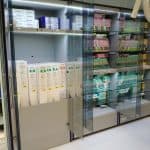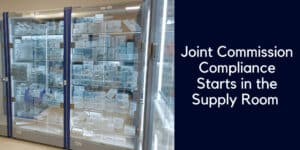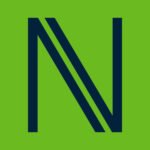What’s inside:
- Learn how IoT and smart supply cabinets track medical supplies in real time.
- Discover how hospitals reduce waste, prevent stockouts, and optimize costs.
- Smart cabinet systems impact patient care and workflow
- Data-driven decision-making from smart cabinets supports hospital leadership and operational strategies.
The digital revolution has reshaped how we live, work, and interact, none more so than in healthcare. The rise of the Internet of Things (IoT) has turned simple data collection into actionable insights that improve operational efficiency, patient care, and resource management.
“The world is being re-shaped by the convergence of social, mobile, cloud, big data, community, and other powerful forces. The combination of these technologies unlocks an incredible opportunity to connect everything together in a new way and is dramatically transforming the way we live and work” — Marc Benioff
Hospitals are increasingly using smart cabinet system to harness the power of IoT, connecting patients, medical staff, devices, and vendors. By integrating automating tracking systems into daily, even mundaine operations, healthcare facilities can turn raw data into meaningful knowledge, leading to faster decisions, reduced waste, and improved patient outcomes.
How Smart Cabinet Systems Revolutionize Hospital Inventory Management
1. Accurate Tracking of Medical Supplies
Medical devices and consumables often have strict expiration dates and usage limits. A smart medical cabinet system with IoT connectivity can automatically track shelf life, send alerts before expiration, and update central databases in real-time. This reduces the risk of expired or unavailable devices, ensuring that hospitals always have the right tools at the right time.

2. Optimized Resource Allocation
Traditional allocation methods—based on averages or overstocking—often lead to waste and unnecessary costs. Smart cabinets provide real-time inventory monitoring, allowing hospitals to allocate resources efficiently based on actual usage patterns. This approach balances cost management with optimal utilization of supplies.
Better allocation of resources is essential to effective hospital cost management. Obsolete allocation methods, where resources were allocated in accordance with average consumption or over stalking, have been abandoned. They were replaced by an IoT approach system where allocation is done more accurately according to need. By tracking medical supplies’ inventory and by the use of smart cabinets that allow automatic monitoring of all medical inventory items, we promote an economical approach towards medical resources. It balances cost management with an emphasis on doing things right (utilization) by doing the right things (allocation).
3. Improving Patient Care and Workflow
By connecting smart cabinets to the broader hospital IoT ecosystem, hospitals can enhance patient experiences. For instance, systems can track device usage, notify staff when equipment is needed, and even guide patients through their care journey. Reducing delays and stress for both patients and staff leads to smoother operations and higher patient satisfaction.
4. Data-Driven Insights for Hospital Management
Smart cabinet systems don’t just track items—they generate valuable data for administrators. Hospitals can analyze usage trends, forecast demand, and make informed decisions that improve efficiency, reduce costs, and maintain compliance with regulatory standards.create an efficient healthcare system
Key Benefits of IoT-Enabled Smart Cabinet Systems
- Real-time inventory monitoring to prevent stockouts and overstocking
- Automated alerts for expiring or low-stock items
- Enhanced cost control through precise allocation of medical resources
- Improved patient care by streamlining workflows and reducing delays
- Data-driven decision-making for hospital leadership






